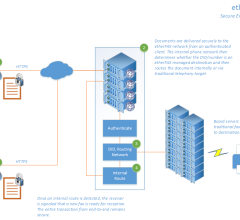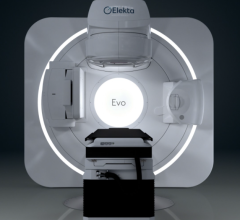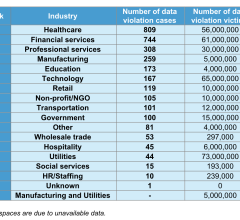
March 26, 2015 — The American Society for Radiation Oncology (ASTRO) called on legislators across the country to find a permanent fix to the sustainable growth rate (SGR) formula to preserve access and improve the quality of care for Medicare’s millions of beneficiaries. The association commended Congressional leadership for introduction of the “Medicare Access and CHIP Reauthorization Act” (H.R. 2) and also met with Congressional leaders in Washington, D.C., as part of its 12th Annual Advocacy Day.
The American Society for Radiation Oncology (ASTRO) commends Congressional leadership for introduction of the “Medicare Access and CHIP Reauthorization Act” (H.R. 2) and urges swift passage during votes in the House and Senate later this week. ASTRO also held its 12th Annual Advocacy Day efforts, with 97 ASTRO members convening in Washington, D.C., for more than 130 meetings with Congressional leaders from their home districts. In addition, ASTRO members across the country called on their legislators to seize the opportunity for a permanent fix to the sustainable growth rate (SGR) formula to preserve access and improve the quality of care for Medicare’s millions of beneficiaries.
The SGR, originally instituted in 2003, has been patched 17 times in the years since then, and a 21 percent rate reduction for all physicians is scheduled to take effect on April 1, 2015, if legislation is not passed in time. The permanent SGR fix would yield a new Medicare payment system that should stabilize reimbursement with a focus on higher quality care.
ASTRO also continued to encourage Congress to offset the costs of repealing the SGR and reauthorizing the Children’s Health Insurance Program (CHIP) with $3.5 billion in 10-year savings achieved from closing the physician self-referral loophole for radiation therapy, known as the in-office ancillary service (IOAS) exception. The President has recommended closing the IOAS exception in his budget three years in a row, including the fiscal year 2016 budget, and this delivery system reform policy is supported by several bipartisan groups, as well as AARP.
“We are at a turning point for our nation’s healthcare system. Permanently fixing the SGR with the comprehensive plan outlined in this legislation would be significant. A stabilized reimbursement plan would strengthen Medicare and allow us to improve quality faster for our patients,” said Bruce G. Haffty, M.D., FASTRO, chair of ASTRO’s board of directors. “ASTRO members across the country provide radiation therapy to more than 1 million cancer patients each year, and passage of this legislation will help us accelerate our primary mission—curing cancer. We commend the bipartisan Congressional leadership for these proposals and urge immediate passage to end the short-term patches and realign physician reimbursement with both value and quality of care. As Congress continues to examine needed Medicare delivery system reforms, we urge closing the physician self-referral loophole to further reinforce patient-centered care and to realize significant savings that can help offset the costs of healthcare priorities, including the SGR repeal and CHIP reauthorization.”
The legislation would increase physician pay by 0.5 percent in the second half of 2015, and then an additional 0.5 percent annually from 2016 through the end of 2019; the 2019 rates would be maintained through 2025 with no additional increases. The bills also include comprehensive structural changes to Medicare’s reimbursement model that would promote physician participation in clinical quality improvement activities and value-based, quality care that would take full effect in 2019. In addition, current Medicare programs that reward electronic health records, quality reporting, the value-based modifier and meaningful use would be merged by 2019 to encourage participation and to reduce the administrative burden. The total package for the SGR fix is estimated to cost more than $200 billion over the next 10 years, of which approximately $70 billion would by offset by additional Medicare policy changes.
For more information: www.astro.org


 May 20, 2024
May 20, 2024 








